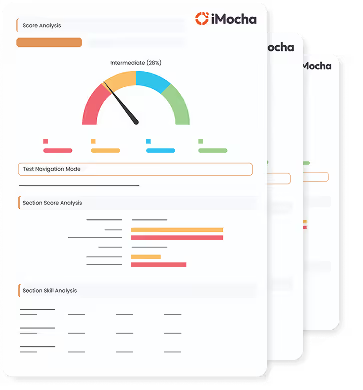


Choose easy, medium, or tricky questions from our skill libraries to assess candidates of different experience levels.
Choose easy, medium, or tricky questions from our skill libraries to assess candidates of different experience levels.

Choose easy, medium, or tricky questions from our skill libraries to assess candidates of different experience levels.

Choose easy, medium, or tricky questions from our skill libraries to assess candidates of different experience levels.
This a comprehensive PDF report, which you can instantly download and share with your hiring team or candidates for seamless collaboration.
Download Sample Report



The Decision Making Test evaluates a candidate's ability to analyze information, compare alternatives, and choose the most effective solutions. It assesses logical thinking, critical reasoning, and judgment under different conditions to understand how candidates approach complex situations.





%20(1).webp)
Decision making is the ability of a person to find various alternative solutions to a problem and select one based on different decision making styles. Decision-making skills can also be referred to as problem-solving skills by choosing any one action based on data implementation, tactic, and knowledge. It is also defined as the ability to think logically about a person, thing, object, or any situation in a decisive manner. Since problem-solving and decision making is very closely related to each other, being decisive or making a decision is an essential area of the problem-solving process because it involves various alternatives.
The decision making skills test helps recruiters to assess the ability of a candidate to analyze a problem, find alternatives to solve the problem, & think about a possible solution. The test is designed by experienced Subject Matter Experts (SMEs) to evaluate candidates on different aspects of decision making, like problem solving & analytical skills.

The decision making aptitude test helps to screen candidates for the following:
The test is designed considering EEOC guidelines, and helps assess & hire diverse talent without any bias. With role-based access control, you can now maintain security within your account by providing access to each user based on their established role. Moreover, with the help of our advanced cheating prevention tools (like image, audio, & video proctoring, window violation detection), you can allow candidates to attempt the test from anywhere in the comfort of their time zone.
The decision making test may contain MCQs (Multiple Choice Questions), MAQs (Multiple Answer Questions), Fill in the Blanks, Audio/Video Questions, LogicBox (AI-based essay evaluation), Job-based Simulations, True or False Questions, etc.







.webp)
.webp)
.webp)
.webp)